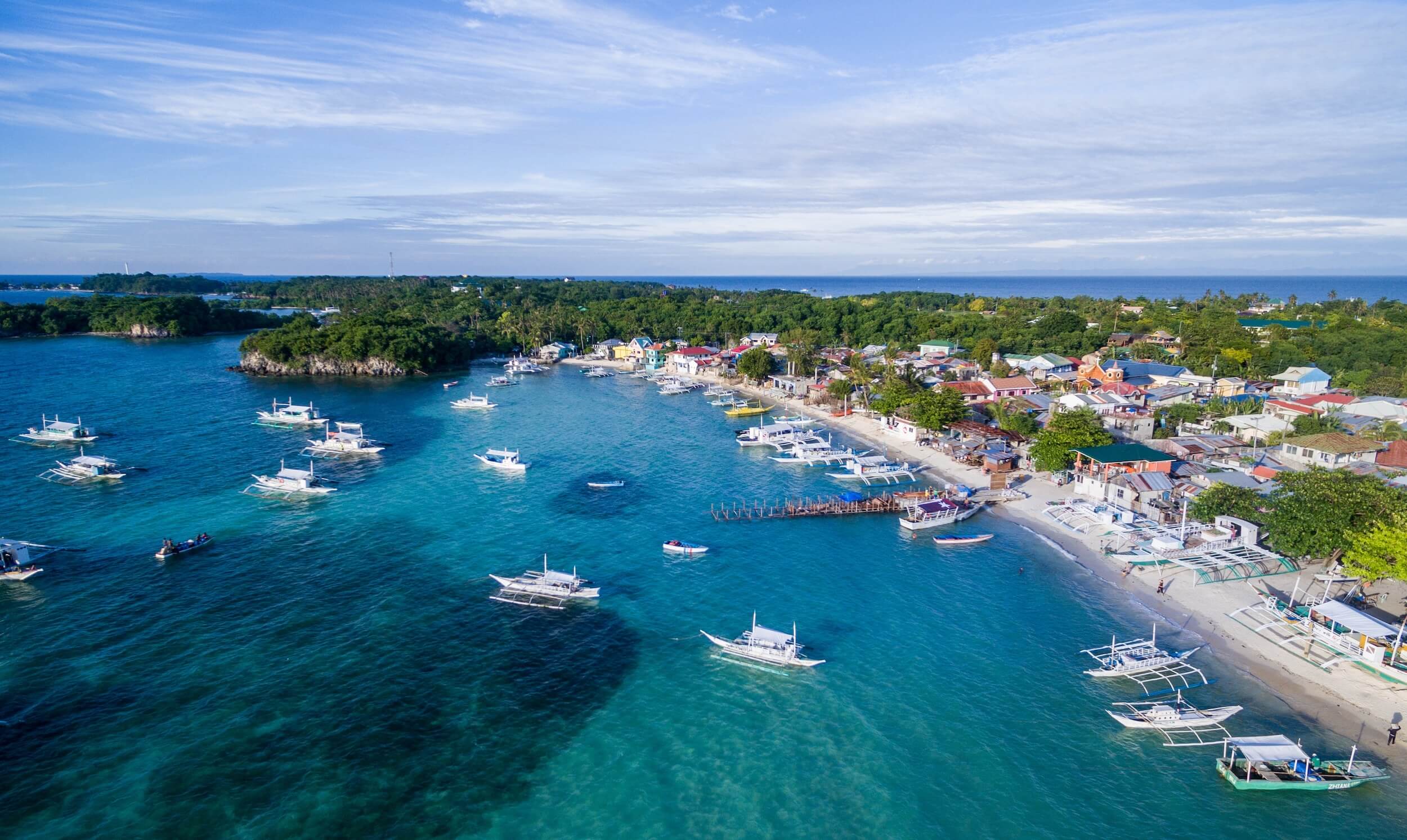




Executive Director Maimunah Mohd Sharif shares with The ASEAN how good urban governance is crucial to ensure urbanisation leads to equitable and sustainable growth.
Cities worldwide are urbanising at a rapid rate. Since 2007, cities have been home to more than half of the world’s population. That share is projected to rise to 60 per cent by 2030 and to 70 per cent by 2050, making urbanisation one of the most significant and defining trends of the 21st century.
The speed and scale of urbanisation in ASEAN are quite striking. Today, more than half of the people in ASEAN live in urban areas, and an additional 70 million people are estimated to live in ASEAN cities by 2025, which is equivalent to more than the current population of all capital cities in ASEAN. Moreover, urbanisation in Southeast Asia is taking place across the urban-rural continuum, from the smallest and most remote communities to burgeoning megacities.
How we plan for, manage, and anticipate urbanisation will shape development trajectories and the lives of millions. To meet the needs of our planet and people, cities must be supported and governed to be sustainable, resilient, green, healthy, just, inclusive, and safe.
Having had the honour of serving as the Mayor of Penang, Malaysia, I have seen firsthand the urban transformations taking place in my home city and across Southeast Asia.
The ASEAN Sustainable Urbanisation Strategy, launched in 2018, is grounded on a deep understanding and forwardlooking perspective that no country has yet achieved high-income status without high levels of urbanisation. Consequently, the prosperity of ASEAN is intimately linked to the prosperity of its cities.
Urbanisation has been a propeller of economic growth in Southeast Asian cities. Much of this growth occurs not only in mega-cities such as Bangkok, Jakarta, and Manila but also in smaller and intermediary cities with populations between 500,000 and five million.
Across the region, cities are fulfilling their promise as engines of national and regional growth, continuing to attract households and individuals while offering countless economic, social, and cultural opportunities. This promise is captured in UN-Habitat’s World Cities Report 2020: The Value of Sustainable Urbanization, which affirms that well-planned, managed, and financed cities create unquantifiable value that can vastly improve the quality of life.
However, urbanisation is making development challenges more complex, not only in terms of demand for better housing and basic services provision but also with regard to environmental, public health, and climate change issues. Poverty, informality, and inequality are still prevalent across the region. Indeed, urbanisation is exerting serious pressure on freshwater supplies, resource extraction, ecosystems, biodiversity, and health and sanitation systems.
The resource footprint of cities across the region is expanding. According to the ASEAN Sustainable Urbanisation Strategy, by 2025, waste volume in Southeast Asia is expected to increase by 150 per cent from 1995 levels. Many cities in Southeast Asia face the existential threat of rising sea levels and the increased frequency of natural disasters.
So, what are some of the important elements that make up a sustainable city?
To provide a fertile ground for sustainable growth, cities require holistic approaches integrating sectoral solutions. Urbanisation cannot be addressed in silos.
Irrespective of a city’s profile and demographics, good urban governance is a critical enabler of sustainable urban development. Strengthening policies, multi-level governance frameworks, and partnerships with relevant national and local agencies and stakeholders help deliver results.
Integrated and inclusive strategic planning that responds to and anticipates the needs of cities can mitigate future challenges and deliver better urban environments.
UN-Habitat has supported 56 countries globally in different stages of their national urban policy development, including Myanmar and the Philippines.
Strengthening capacity to deliver basic urban services such as water and sanitation, waste management, mobility, and energy, is critical to securing improved livelihoods, particularly for marginalised communities. In 2020 alone, 500,000 people were reached globally through UN-Habitat’s Urban Basic Services Trust Fund, set up by UN-Habitat to support member states in addressing the increasing deficit in urban basic services in the face of rapid and unplanned urbanisation. In this regard, one of our initiatives is the Waste Wise Cities Campaign, which brings together over 200 cities committed to promoting the 5Rs: Rethink, Refuse, Reduce, Reuse, Recycle.
To understand what is happening in our cities and how we can act, we also must build smarter cities that are able to gather and manage data for sustainable urban development at the local level. In collaboration with ASEAN, UN-Habitat is providing technical support to cities in developing viable technical project proposals focused on digital solutions to enhance safety and security in urban areas, in alignment with the priorities indicated by the ASEAN Sustainable Urbanisation Strategy.
We must also strive for sustainable cities by exploring critical and emerging policy opportunities and new ways of thinking and working. The Future of Asian and Pacific Cities report, produced in collaboration with the United Nations Economic and Social Commission for Asia and the Pacific (ESCAP), identifies 15 policy pathways that can guide future urbanisation in the region to deliver on the 2030 Agenda for Sustainable Development and the New Urban Agenda.
These elements for achieving sustainable urbanisation demand greater attention as countries globally face the seminal wake-up call of the COVID-19 pandemic. Many cities across Southeast Asia have been hit hard by recent waves of COVID-19 cases. Nevertheless, the pandemic must be an opportunity to build more sustainable cities, not just in overcoming the current and future pandemics but also in responding to other long-term global stresses.
The UN Secretary-General’s policy brief, COVID-19 in an Urbanizing World, and the UN-Habitat COVID-19 Response Plan, aim to support local government and communitydriven solutions in informal settlements; provide urban data, evidence-based mapping and knowledge for informed decisions; mitigate economic impacts, and initiate recovery.
The recent UN-Habitat report, Cities and Pandemics: Towards a More Just, Green, and Healthy Future, suggests that there is an opportunity from the pandemic for cities to seize the moment and enhance their inclusiveness and sustainability.
The report provides guidance to local, regional and national governments, and practitioners on designing coordinated policies from the local to national levels that are based on strong local data of more than 1,700 cities and well-documented evidence.
It is encouraging to see the great efforts of ASEAN to support cities in achieving sustainable urbanisation and harnessing this collective potential.
Sustainable and inclusive urbanisation is a key priority to achieve the objectives of the Master Plan on ASEAN Connectivity 2025 and to raise the living standards of communities all over Southeast Asia.
Since 2020, UN-Habitat has been collaborating with ASEAN to accelerate the implementation of the ASEAN Sustainable Urbanisation Strategy, providing technical support to pilot cities and bridging knowledge and lessons learned to regional-scale initiatives. This work is being conducted with the generous support of the ASEAN-Australia Development Cooperation Program- Phase II (AADCP II) and collaboration with various partners.
Cities across Southeast Asia have an immense wealth of lessons and experiences to share with the world. One example is the growing effort of ASEAN cities to complete their Voluntary Local Review (VLR) of the SDGs. The VLR approach complements Voluntary National Reviews (VNR), represents a valuable instrument for cities to monitor their progress towards sustainable development, and offers fertile ground for fruitful exchanges with partners and cities at the national, regional, and global scale.
It gives me great pleasure to welcome cities from across Southeast Asia to the next World Urban Forum 11 (WUF11), to be held in Katowice, Poland, from 26 to 30 June 2022, with the theme of Transforming Our Cities for a Better Urban Future.
WUF11 presents a timely opportunity for us to come together and share the invaluable lessons learned from the ongoing pandemic, accelerate sustainable urbanisation, and suggest ways cities can be better prepared to address future shocks and challenges.
In this spirit of transformative change, we must continue to look for and implement innovative ways to plan, build, and govern our cities.
UN-Habitat stands ready to work in partnership across Southeast Asia towards sustainable urban development and a better quality of life for all.








